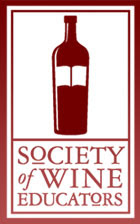 Honestly, I think this beast will never die…
Honestly, I think this beast will never die…I saw last week on Tom Wark’s Fermentation blog that he has thrown his lot behind the 100-point rating scale, endorsing it, and saying that wine drinkers like it. I realize that many of the wine bloggers out there, along with a growing disgruntled contingency, were left with their jaws scraping the asphalt upon reading this, but like Tom, I have to agree with him, at least on the allusion that the scores make it easy for wine drinkers to find good wines.
However, I would have to disagree with him on just about everything else.
I spent all weekend debating on whether or not to chime in on the comments portion of Tom’s blog, or write about it here, or just simply let a sleeping dog lie. Obviously not one to leave the dog alone, I feel compelled to throw out another two cents into the cesspool of opinion, a pool that seemingly holds more garbage than anything else.
I agree with Tom that the 100-point scale has made it remarkably easy for wine consumers to breeze into their local wine haunt and pick up the latest 90+ trophy from Wine Spectator, Robert Parker, etc. But it has done something else too. It has taken away that explorative aspect that makes getting into wine so thrilling. Granted, many wine consumers just don’t have the time to do the research that many of us wine geeks (sommeliers, wine writers, winemakers, etc.) love to do. Yet I can’t tell you how many customers over the years I have talked to who tell me, “I bought this wine the other day… it was 92 points in (whatever magazine) and they said it was excellent… I took it home, and I thought it was terrible. Why?”
The easy answer is that that particular reviewer’s tastes and the customer’s are very different. Does that make the customer wrong? Hell no! Does it make the reviewer wrong? Again, no. The simple truth is that one person’s tastes are completely different from the next, and trying to place a cumulative score on something as subjective as a wine is near-impossible. Sure, it is done daily thanks to the Internet and the gazillion wine reviewers online at any given moment. Yet it would be difficult to say that their critiques carry into the majority of wine drinkers. Maybe yes and maybe no. The bottom line is that there are no absolutes, and anyone who says one reviewer or one palate is better than the next, is just crazy.
Over my career in this business, I have learned to “interpret” the reviewers” and detect their biases. I have come to rely mostly on Stephen Tanzer’s International Wine Cellar to give me the least biased, although they seem to be especially hard on Australian wines. Nevertheless, with Tanzer, each wine earns every point they get. Wine Spectator’s reviewers seem to have certain biases based upon the beats they cover (James Laube=Napa, Harvey Steinam=Australia, James Suckling=Tuscany perhaps), though the main bias seems to be the high-end wines, the ones that 95% of the wine consumers out there will never, ever try. I like Wine & Spirits because of the credentials many of their writers possess (lots of initials following many of the writers), and Parker is at least known for his impartialness (though most of the great reviews lean heavily on big, massive fruit bombs).
I’ve had these discussions with my owner, who was buying the wines here long-before me, and he will always say, “press is King.” And even though I see the immediate results at the register, ultimately, as I have discussed this with the editor of a major wine magazine, is that the time is now for the system to reinvent itself. We need something that is going to give the customer more information in as concise a manner as the simplistic 100-point score. As ones indoctrinated by the 100-point system via the American education system (I am beating that dead horse again), we simply see 90 points and think it’s an A- or a B+, depending upon where you grew up. Yet what does that really tell you about the wine? And how the heck did the reviewer come to that score? What sets it apart from all the other 90 point wines?
More people ask these questions all the time. And still more customers still don’t know what the heck the score is supposed to mean? I still have customers that see the score, and go, “so what?”
So what indeed.











2 comments:
Good Post!!!
You are right that for those of use who explore wine, the 100 Point scale has a different value than for those that simply need to get their way through 300 wines staring at them off of a shelf and just want a good bottle of wine?
But what about those folks that just want a bottle of wine and want to feel good about the the $20 they are dropping.
Cheers,
Tom Wark..
I hear ya Tom. And you are right. Yet as a retailer, it is my job, and the job of every member of my wine staff, to give a bit more to the customer than just a 90+ point wine. We take the time to find out exactly what each customer likes and dislikes and recommend wines accordingly. Granted, not every wine store is like that, but if we do it, then somebody else does it, and somebody else, and ultimately, the goal is to replace the "strangers" like Parker and WS with their friendly "neighborhood" wine geek.
Post a Comment